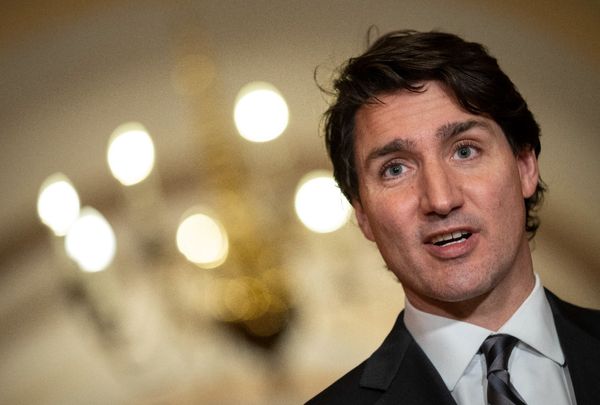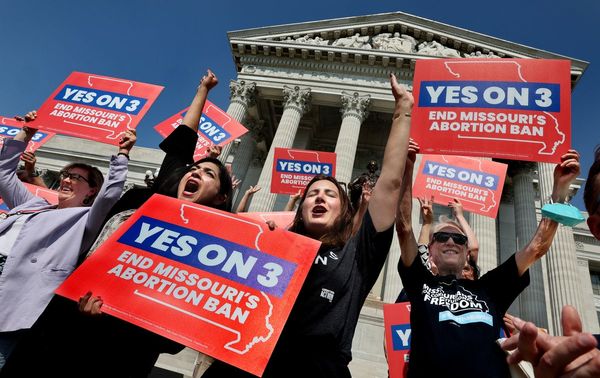
President Biden’s speech in Philadelphia last week, on the imminent threat to democracy, marks an important moment in US history.
The president was precise and direct about why democracy is under threat, and from whom. Throughout his speech, he made sure to distinguish between what he called “mainstream Republicans” on one side and extremist “Maga Republicans” on the other. But Biden also left no doubt that the extremist forces are not simply fringe phenomena, that today’s Republican party is “dominated, driven and intimidated by Donald Trump and the Maga Republicans”.
Biden was right to tie the Republican anti-democratic radicalization to the broader assault on the post-1960s civil rights regime. “Maga forces are determined to take this country backwards,” the president declared, “backwards to an America where there is no right to choose, no right to privacy, no right to contraception, no right to marry who you love”.
Both the attempts to subvert the political system and to impose conservative social and cultural ideals on the entire country are indeed part of a broader reactionary counter-mobilization against egalitarian, multiracial, pluralistic democracy. The conservative vision for America is one of maintaining traditional hierarchies, of 1950s-style white Christian patriarchal dominance in all spheres of American life: the political institutions, the public square, the workplace, the family. And conservatives understand that they are pursuing a minoritarian project. In a functioning democratic system, they would have to moderate, accept compromise, accommodate the will of the majority. Instead, they have chosen a different path, favoring authoritarian minority rule over the acceptance of democratic defeat.
Biden explicitly marked the current situation as exceptional, as “not normal”. In many ways, however, the struggle over democracy has been very much the norm in US history, as the question of who should get to actually participate in the democratic process has always been a highly contested issue. And yet, the fact that this struggle now overlaps so clearly with party lines is indeed the result of a rather recent ideological reconfiguration of the two major parties.
This process of party realignment or partisan sorting started before the 1960s – but the major civil rights breakthroughs of that era certainly acted as a crucial catalyst. Until the final third of the 20th century, those who wanted to leave white patriarchal rule intact largely dominated in both parties, or at least were powerful enough to veto any serious racial and social progress; those who wanted to transcend traditional hierarchies could also be found on either side of the aisle, but they weren’t influential enough to upend the bipartisan white elite consensus.
The establishment of the civil rights regime in the 1960s sped up a process by which all those opposed to egalitarian, multiracial, pluralistic democracy united in the Republican party. Their voices have dominated the Republican party since the 1970s. While the Democratic party came to lean towards embracing the idea of extending the democratic promise, conservatives were willing to tolerate democracy only as long as it wouldn’t undermine established hierarchies. Their allegiance, however, was never to democratic ideals – but to the traditional order of white Christian patriarchal dominance.
Whatever doubts anyone may still have held about where the parties stood on the question of multiracial pluralism got a clarifying answer during the Obama and Trump presidencies, which fully polarized “the Left” and “the Right” around the core issue of democracy. That’s the main reason why the media’s criticism of the speech’s “partisan” nature misses the mark so severely: yes, it was partisan! Because that is the fundamental reality of American politics right now: The conflict over whether or not the country should actually be a democracy maps on to the conflict between the two parties. Democracy itself has become a partisan issue.
The president claimed that the country has reached an inflection point, a moment in which “America must choose to move forward or to move backward.” Within the context of the speech, this notion served to sharpen the contrast between the pro-democratic forces Biden wants to mobilize and the Maga Republicans. But it’s also an apt description that captures the historical significance of the current moment, emphasizing the fact that the status quo is untenable, that there is no stable equilibrium in sight.
As the reactionary counter-mobilization is escalating, particularly in Republican-led states, America is being split into a multiracial, pluralistic “blue” part that accepts the country’s changing social, cultural and demographic realities v a white Christian nationalist “red” part that is led by people entirely devoted to rolling back those changes.
While Republicans claim to be representing “real America”, their agenda of entrenching a white Christian patriarchal order lacks majority support – and the gap between what most Americans want and what the Republican party is implementing wherever it gets the chance is rapidly growing. Some form of stability can only be achieved by either overcoming reactionary rule – or through ever more authoritarian measures and increasingly violent oppression. The fact that a shrinking minority of white conservatives is consistently being enabled to hold on to power against the will of the majority of voters is causing a massive legitimacy crisis. And unless the system is properly democratized, it is only going to get worse.
Of course, there has never been a consensus that the “soul of the nation”, as President Biden called it, is defined by egalitarian ideas. At its heart, the country has always been divided between those who envision America as a beacon of democratic equality and those who see it as a land of and for white Christians. “We honor the will of the people,” Biden proclaimed. But the key conflict has always been over who gets to delineate the boundaries of “the people” – and who gets to claim equal rights as a member of the body politic.
“For a long time,” Biden warned, “we’ve told ourselves that American democracy is guaranteed, but it’s not.” Still, the president insisted on striking a hopeful note at the end: “I have no doubt, none, that this is who we will be and that we’ll come together as a nation that will secure our democracy.”
But the future of American democracy is actually very much in doubt. That was the whole reason why this presidential intervention was urgently needed. It really could happen here. And any successful attempt at halting America’s slide into authoritarianism must be built on an unflinching admission of where we are, of democracy’s potential demise – even here, in the land of the free.
Thomas Zimmer is a visiting professor at Georgetown University, focused on the history of democracy and its discontents in the United States, and a Guardian US contributing opinion writer







